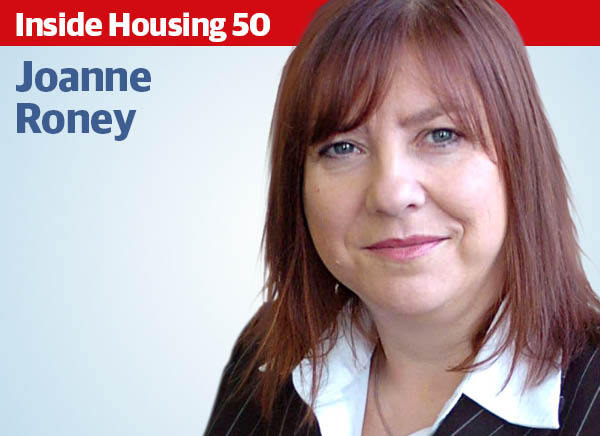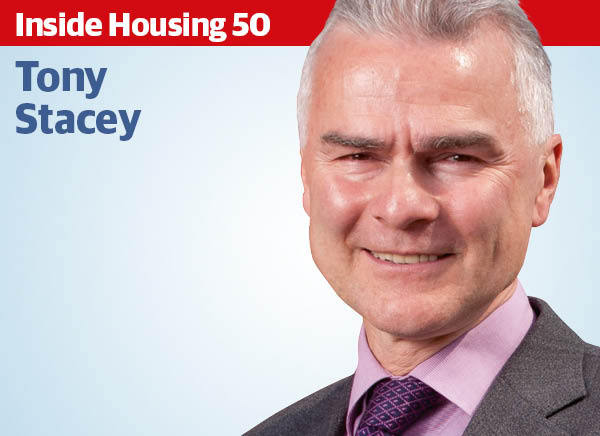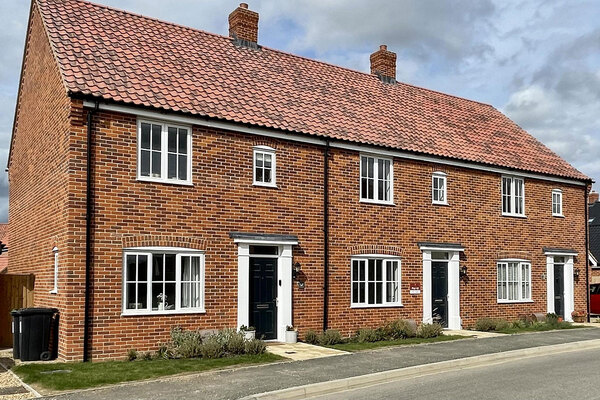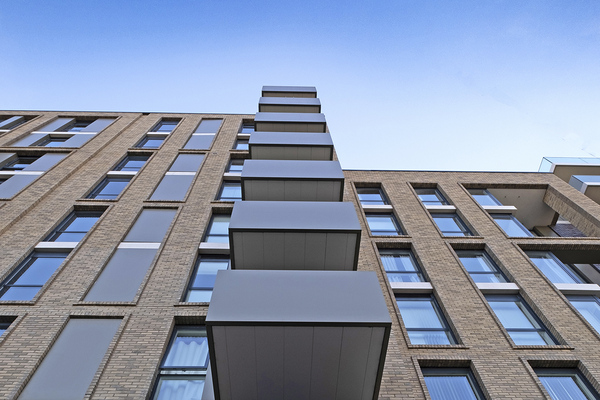You are viewing 1 of your 1 free articles
Greg Clark speech to NHF conference: Full transcript
The full text of Greg Clark’s speech to the National Housing Federation in Birmingham - exclusively transcribed by Inside Housing.
If we think about housing and ask ourselves the fundamental questions, what do people really want?
Food, a home, warmth and love.
Take any one of these away and you grotesequely diminish a life’s potential for joy. Take shelter away and you make the attainment of the other three necesseties that much harder to achieve.
One of the reasons I was so keen to spend time with you in Birmingham yesterday was because what you do matters. And I was also proud of my time on the board of a housing association and seperately as the trustee of a hostel.
Proud because we did the vital job of providing those roofs to cover people’s heads. Proud too because through the dedication, the skill and the dedication of staff we gave hundreds of people what they need to achieve the future that they wanted but which at times seemed far out of reach.
So housing is special because it is so vital, but also because its so personal every home you build or evrey home you manage changes the lives of the people who live in it. I bet you, like me, can picture the course of your lives through the homes that you have lived in.
For me it was a bungalow and a garden in Middlesbrough where I spent all of my childhood. Then the thrill of that first room of my own, Virginia Woolf was right about that at least, at university. The musty smell, the crappy furniture we’ve all been there, the creeping awareness that adulthood was coming to be associated with that moment. And then after that the fun and the diplomatic challenges in a succession of flat shares post university.
The flat that I carried my first child home to, and now my family home in Kent, a home that begins again that cycle for my own children.
And it’s true for everyone. For good and sometimes for bad.
And so its a big responsibility to be the people, as we all are in this room, who can shape those memories and to a great measure those lives.
So that’s why I, just like you am so determined to build more and better homes. Almost all of us in this hall today are fortunate enough to live in our homes. I say fortunate not just because of the economic security a home will provide, your home is a refuge against everything the world can throw your way. So we have a duty to provide a home everyone can enjoy.
And that duty becomes an imperative when fewer and fewer people can share what our generation has taken for granted. The reason for this is well known and simple. We have been building too few homes. Far too few. For far too long.
There are over 200,000 households a year being formed. Households should have kept pace with that. Yet in recent memory house building suffered a cardiac arrest. In the last quarter of 2008, housebuilding was 20,000 homes away from stopping altogether.
Since then, the patient has been revived. But when commercial developers sat on their hands and their landbanks, had it not been for the contribution made by housing associations, I’m the first to acknowledge the situation would have been much worse.
Now the [National Planning Policy Framework] is having a positive effect, just as we intended. Planning permissions are up by over a third since it was adopted. On average more homes are being built in Britain - this is what we argued during that big debate, with the support of the federation, and it’s come to pass.
But it’s not enough. Last year about 131,000 new homes were completed. Way short of the 200,000 plus that we need each year to house our fellow citizens. This must change. And I regard that as a personal responsibility.
I want to see a million homes built during in the next five years, and then I want more. We must tackle the housing deficit with the same determination with which we are expunging the financial deficit. The long term economic plan is important, but the long term housing plan is vital too.
It is not just the number of new homes that has fallen way short of what’s needed. Twenty five years ago 85% of the population said they wanted it. Five years ago, it was 86%. And yet the aspiration and the reality of home ownership has drifted apart.
In 2003 71% of people in this country achieved this ambition. Yet over the following decade that had fallen to 63%. Between 1996 and 2012 the number of 20 to 34 year olds living with their parents had increased by two thirds of a million. We have all heard of the bank of mum and dad, well increasinly young people have had to rely on the hotel of mum and dad too.
And our government is determined to ensure home ownership is once again seen as a reasonable aspiration for working people. So as with house building we have made some important progress. The number of first time buyers is at a seven year high. And through policies like Help to Buy 200,000 people were assisted to buy their home during the last Parliament.
But as with housebuilding we have much further to go and I want to hold out just the same aspiration to own their own home to the next generation as to our generation. And that includes housing association tenants.
Your tenants share the same hopes and dreams as everyone else. They live in the same towns, their children go to the same schools, they have the same ambitions themselves.
They should have the same opportunity, if they want it, to own their own home. Andthere is no reason at all why signing a tenancy agreement with a housing association should mean signing away your aspiration to own your own home.
That’s why extending the Right to Buy to housing association tenants was such a big part of our election manifesto. So big in fact it was chosen to launch the manifesto itself. Now that manifesto has been endorsed by a clear majority in the polls and we will waste no time in discharging our promises. And to do so alongside a massive programme of house building such has not been seen in this country since the days of Macmillan.
And that is what we will do during the years ahead of us. It is a big moment for our country and a point of decision for this sector.
I’ll be completely candid, there are some who say that to achieve the transformation we need requires a fresh start - that the housing association sector has taken us so far but might not be the right partner for the future.
That the energy and appetite for rapid and creative development is not what it was. That in truth the sector’s heart is in developing properties for rent, and little zeal for developing homes for home ownership.
That a once insurgent movement has become staid - with development too low and executive salaries too high.
That for the transformation in housing we seek we should look elsewhere. To councils through the devolution agenda, to private developers, to our own agencies in government and to new entities.
But there is another view: that this is a sector that has scored big successes over many years. That can be agile and adaptable to the changing opportunities and requirements of our nation. A sector that has always been respectful of the mandate of that successive governments have had.
That deep in the DNA of this sector is an instinct to empower and give opportunities to people, going beyond the strict business of building and renting out homes. And that the devolution agenda, putting local communities in the driving seat is an unmissable opportunity for associations who know their communities inside out often better than most other people in those communities.
A view that this is a sector which is a standing army of expertise, motivation and experience, capable of building hundreds of thousands of new homes that our country so desperately needs.
So two contrasting views: Be content with the achievements of the past - or look to build and to own a new future.
And the choice between them will determine the very future of the housing association movement.
My unambiguos opinion is that this sector’s future lies with the second option. You are already helping to reverse recent history, helping to build more homes than we have done for years. And of course you helped build 80,000 shared ownership homes over the last decade.
Now I want you to expand the mission by expanding the opportunities of home ownership even quicker. But in no way would such an expansion contradict your important historical mission.
Let me explain why. David Orr and I have spent the summer working together on a proposal that he makes for a big place for this sector in the future of government. At its heart is a joint commitment to build more homes than we have built for decades. And it’s based on a recognition that you are voluntary organisations perfectly capable of working with me and with Brandon Lewis my housing minister and the government as willing partners rather than requiring legislative compulsion.
So David’s proposal is in three parts:
The first is that the opportunity of extending the Right to Buy will be embraced voluntarily in keeping with the housing association tradtion to empower and meet the aspiration of tenants.
Associations would give the chance to your tenants, for anyone who wishes to take it, the chance to own your own home. In other words all 2.3m tenants with the same degree of financial help through discounts that are available to council tenants.
In every case the tenant would have the chance if they want to achieve their goal. The housing association would have the chance to build a new property, expanding the housing association sector.
The presumption would be that most people would have the chance to buy the home that they live in. But just as with the council Right to Buy sometimes there may be good reason why that’s not in everyone’s interest: In a rural area where planning restrictions mean replacements simply can’t be built for example, where the property is part of a wider service that’s been provided such as sheltered accommodation.
In cases like this, the association would have the discretion, if reasonable in the spirit of the scheme to offer an alternative home, and the tenant would have the option to take their discount to the other property.
Each property sold will have the discount refunded by the government at open market level, so that no one is out of pocket.
And the second part of David’s proposal is that the sector would have a guaranteed place as a major force in building new homes. Every home sold will trigger a new home built by a housing association on a one for one basis. For every tenant who exercises the Right to Buy housing stock will rise by one.
Releasing equity in people’s homes to build new homes that otherwise couldn’t be supplied will be one of the principle benefits of the Right to Buy.
Under David’s proposals, it will be housing associations rather than alternative partners of government who will build hundreds of thousands of these new homes.
Furthermore we want these homes to be built as quickly as possible. As you know, councils have three years to build a new property whent the Right to Buy is exercised. I want to speed that up. The Nat Fed has challenged us to simplify the regulatory hurdles so that new homes can be built within two years. I will rise to that challenge that has been set - to bring forward new land for development, including public land. To allow a broader range of new properties, including starter homes and shared ownership.
And where the Right to Buy is exercised in an association that is not developing new homes, the proposal is that the Nat Fed would help match them with an organisation that is keen.
The third part of David’s proposed agreement would be to make an historic change.
Rightly or wrongly, the housing association movement has not been principally associated with increasing home ownership. As most of us know in this room, that is very unfair.
Most of you in this room have been restrained by regulation, by public policy and by your public sector partners.
And yet even with these restraints you have found ways to be inventive enough to allow people who want to achieve their aspirations through such things as flexible tenancies.
And so I want to work with you to provide the means for every tenant who wants to - new or existing - to acquire a stake in a home that can increase over time.
I want to follow the same golden principle that applies to the Right to Buy, namely that where a financial contribution is inejected by tenants all of it should be used to build new homes.
Taken together, this is a proposal which offers the chance of a new partnership between housing associations and the government. It’s one that would respect the independence and the voluntary ethos of the sector. And it provides for both for the extension of the Right and for other ownership opportunities, and critically for the expansion of home building.
It is a proposal that if it were put to the government by the whole sector and agreed it would make it unecessary to take legal measures to extend the Right to Buy.
But of course, that is for you collectively to decide.









